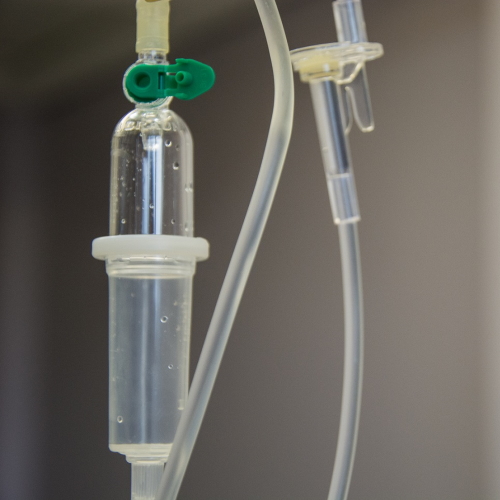Managing Nausea and Vomiting from Chemotherapy
Nausea and vomiting are two of the most feared chemo symptoms, and for good reason — not only do nausea and vomiting feel downright horrible, they can keep you from getting the nutrients and calories your body needs to help you heal during chemo.
While modern-day chemo patients are often given a list of anti-emetics (anti-nausea medications) a mile long, breakthrough nausea can still sometimes occur.
Read on to find out why chemo causes nausea and vomiting, tips and tricks for staying on top of the nausea, and what to do if you have breakthrough nausea or vomiting.
Why does chemo cause nausea and vomiting?
Chemotherapy is typically given through the bloodstream, so why does it cause nausea or vomiting? According to the American Cancer Society, chemotherapy triggers an area of the brain that then sends signals to your esophagus, stomach, and intestines. This then activates a reflex pathway that causes nausea and vomiting.
There are often other factors surrounding cancer treatment that can contribute to nausea, including anxiety, other medications, and the cancer itself. Some people will also experience anticipatory nausea or vomiting, which occurs when a person’s body reacts to a sight, smell, or experience where they’ve felt ill before. If your brain associates the chemo infusion room with nausea, you might feel ill just thinking about walking in the door.
Who experiences chemo-induced nausea and vomiting?
Anyone undergoing chemotherapy might experience chemo-induced nausea and vomiting. According to the Mayo Clinic, there are some risk factors that may raise your chances of getting sick during or after chemo, including:
- Being a woman
- Being younger than 50
- Having a history of motion sickness or nausea
- Having anxiety
- Previous experience with morning sickness during pregnancy
- Having a history of not drinking alcohol
If any of these risk factors applies to you, you may need additional help controlling your nausea or vomiting during chemo.

The biggest and most known is nausea. After my first infusion and into my last, I would have about 72 hours of extreme nausea. This was day-consuming nausea. I would wake up with it, only able to eat a few things, but it did go away. Some people are not as fortunate to have that nausea go away naturally.
I was able to get back into full appetite and energy by about week two after each infusion.What helped me the most with my nausea was having some exercise. That seems counterintuitive, but it stimulates the appetite, gets you out in fresh air, and gives some movement for the body.
Nina L. (DLBCL, Stage 4)
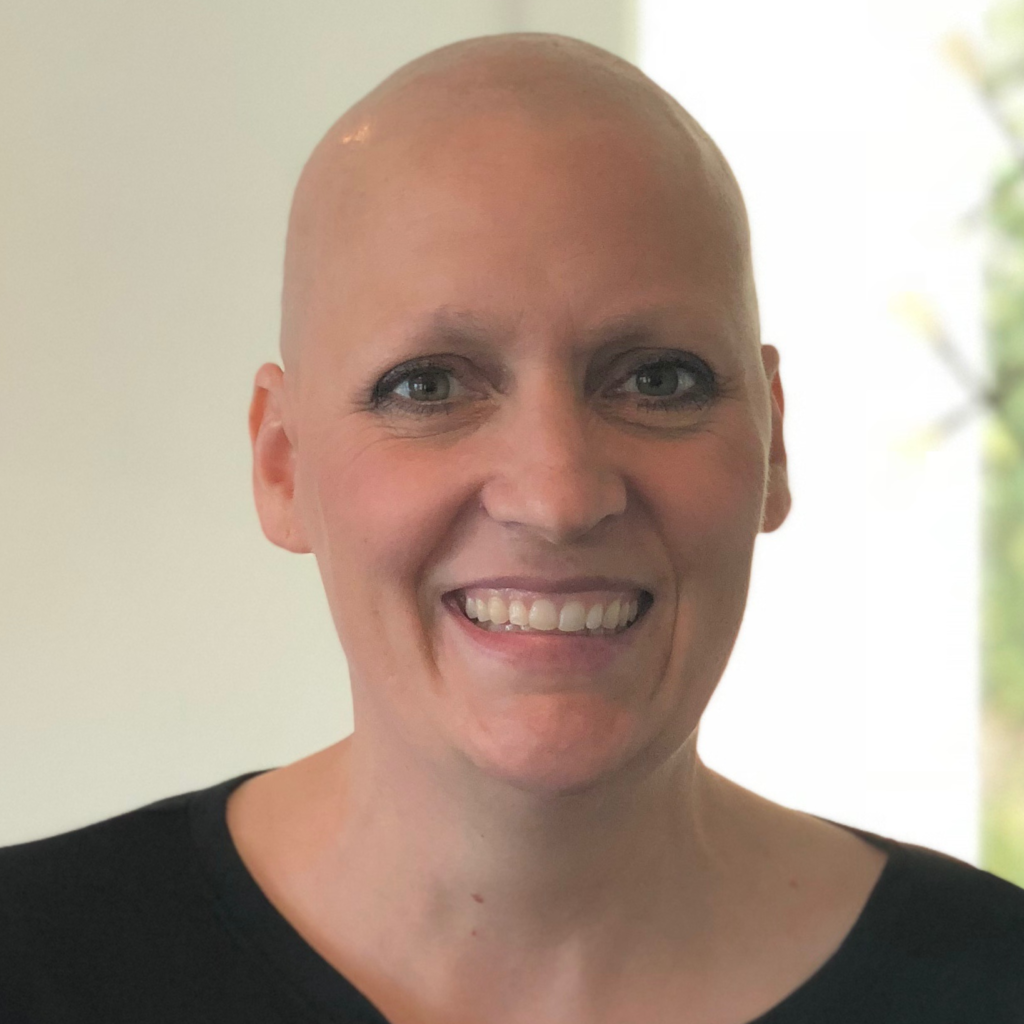
I would go home and rest, but I would feel great. In the middle of the night or the next day I would just get so nauseated, be so sick.
Jodi S. (Metastatic Ovarian Cancer)
How are nausea and vomiting treated?
Ever since chemotherapy usage became widespread in the 1960s and 1970s, doctors have been looking for ways to control the associated nausea and vomiting. One of the earliest drugs used to control nausea and vomiting in cancer patients was the steroid dexamethasone (nicknamed “dex”), which is still one of the most common prescribed anti-nausea drugs today.
Every decade, researchers discover more and more drugs that can help cancer patients control nausea and vomiting. Some drugs, like Zofran (ondansetron), were specifically developed to treat nausea and vomiting in cancer patients. Other drugs, like Ativan (lorazepam), were developed for other uses and were later found to also be successful at keeping nausea at bay. You may have taken some of the drugs your doctor prescribes you to control nausea during chemo for other uses in the past.
Before starting chemotherapy, your doctor should give you a list of drugs to have on hand to prevent nausea and vomiting. Many patients are prescribed a steroid like dexamethasone for a few days after each chemo session alongside other drugs like Zofran, Ativan, prochlorperazine, olanzapine, or medical cannabis. Your drug list may include instructions on the order in which you should take the drugs.
While some patients might be able to control their nausea with fewer medications, check with your doctor before cutting any medications out of your regimen. It is best if you stay ahead of the nausea and vomiting rather than under-medicate and then attempt to play catch-up with your medication after you’ve already started vomiting.

While the nausea continued, it did get better as I began to take the anti-nausea meds more proactively. I also never had mouth sores again after she prescribed medication to prevent them. They weren’t a guarantee, but thankfully they worked for me!
Stephanie C. (Primary Mediastinal B-Cell Lymphoma, Stage 3, Double Expressor)

They had given me anti-nausea medications, but I felt fine the day before, so I didn’t take them. I learned very quickly that even if you’re not feeling nauseous, you should still take the medicine.
Stefanie H. (Invasive Ductal Carcinoma, Stage 3)
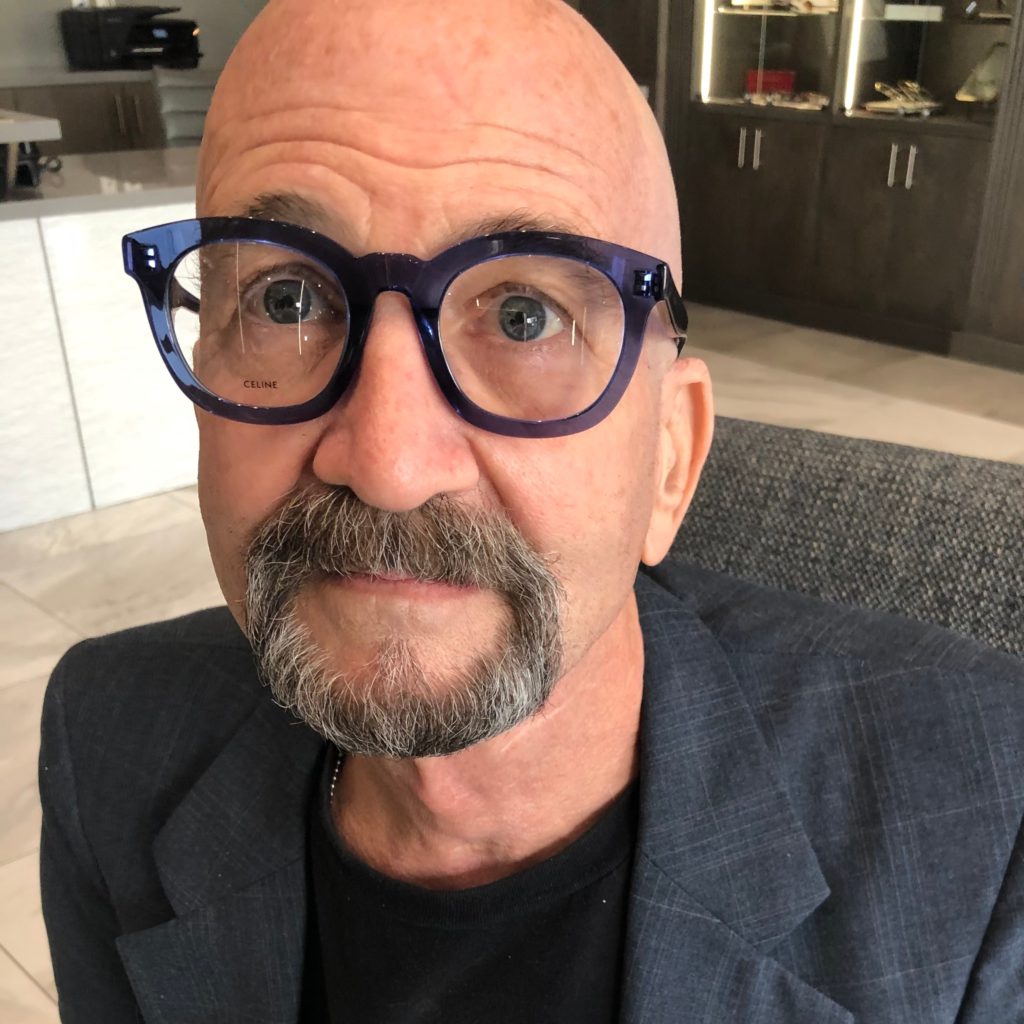
My doctor kind of punched me in the arm, said, “Don’t be a cowboy. Take the [anti-nausea] medicine.” He’s right. I take it so you don’t have the symptoms, but you’d still have that feeling in your stomach.
Richard P. (Relapsed/Refractory DLBCL)

I really feel like I could take the anti-nausea medication and I learned after the first one, I’d just take it that night when I went to bed, take it when I wake up, just keep on that regimen. It really kept the nausea down.
I only threw up a few times during the whole process. After the first time I was in a lot of pain, I always just took the meds beforehand and just kept taking them until I felt noticeably better because it was so much easier to stay on top of it than to get behind.
Jodi S. (Metastatic Ovarian Cancer)
Anti-nausea drug regimens for chemo vary depending on the type of cancer, type of chemo, institution or doctor, and your individual tolerance. Always check with your doctor before combining medications or leaving a medication out of your daily regimen.
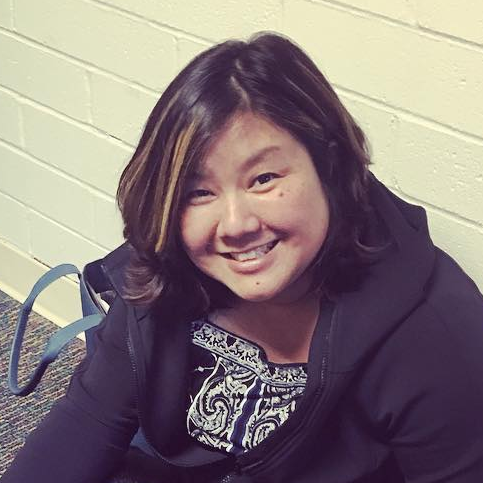
They’d start [my chemo] with anti-nausea medications. That would be for about a half-hour or so. Then an hour later they’d start the AC (Adriamycin, cyclophosphamide) which wasn’t very long, maybe two hours.
The first couple of days I remember feeling pretty good. I would even go work out to keep up my exercise during treatments. But then during Day 2 or 3, little bit of nausea.
They give you anti-nausea medications that I took. I remember just mostly being in bed those two days. I was also working part-time during this time so I timed it, I was able to time it so I’d have the five days – they say you won’t feel well – off and then I’d go into work on Day 6 or 7.
The second week, you feel pretty good, pretty back to normal. And then you start again. So it was usually about five days where I felt stomach queasiness. I remember not feeling like eating much.
Margaret A. (Invasive Ductal Carcinoma [IDC] & Ductal Carcinoma In Situ [DCIS])
Beth A. describes her 3-medication regimen:

The first drug is Zofran… If you’re not feeling any better from that, and that usually does the trick for most people, then you take Compazine which is prochlorperazine… If you’re really still feeling sick and nauseous, the last one is Ativan which a lot of cancer patients are on and take anyway for anxiety and different things. It helps counteract some of the dexamethasone side effects as well.
Beth A. (Relapsed Refractory Multiple Myeloma)

I had nausea, but it was manageable. I had three different nausea medications running 24/7. That was a suggestion from some other people, and it helped so much. I want to be that for others. That’s why I want to be open about my experience.
Scott C. (Multiple Myeloma, IgG Lambda, Heavy Chain, Stage 3)

It was three days of rest and a little bit of nausea. I actually only threw up once before dinner one time. Then it was gone.
Other people have had different experiences, but my care team definitely prescribed me all the anti-nausea medicine and antacids.
I think I had 12 prescription bottles on my bedside table at one point. There are fixes for the worst side effects, which are nausea and sleeplessness.
CC W. (Hodgkin’s Lymphoma, Stage 3)
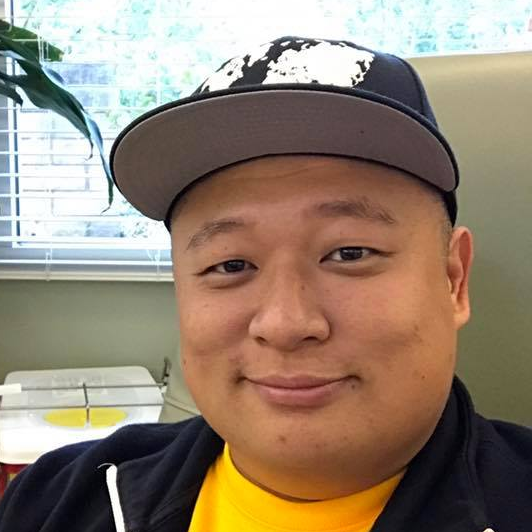
For nausea, an amazing new FDA approved drug called Varubi (rolapitant) that helped suppress much of my nausea. This drug was used by our cancer center and it was one of the best things because it probably kept my nausea suppressed to 10- to 20-percent, though I got nauseous at the end of two weeks.
Helicon K. (Hodgkin’s Lymphoma, Stage 2A)

I take Zofran, which is a pretty common nausea medication. They have stronger stuff if it really starts to affect you.
Evan L. (Acute Lymphoblastic Leukemia [ALL])
Some people, like Bobby J., have trouble with the medications. If your anti-nausea medication is causing you to feel depressed or anxious, talk to your doctor about alternatives.

The worst side effect from the nausea medicines was it basically put me in a depression. I lied in bed, did not want to get up. There were three different medications they gave me. I’m not sure what the three were, but it caused me to go into depression.
They just called it a cocktail, and it was three different anti-nausea medicines. In Cycles 2, 3 and 4, I did not take the anti-nausea cocktail. I believe I took some Ativan.
Bobby J. (Mantle Cell Lymphoma, Stage 4)

They do give you anti-nausea drugs, and they give what they call pre-meds. One of them is Zofran. Dexamethasone was also one of my pre-meds, and those drugs really did a great job of controlling my nausea to the point where I essentially had close to a nausea-free chemo.
Luis V. (DLBCL)

I was given some medication for discomfort. When my anti-nausea medication stopped working (usually by Day 3 of chemo), I was given Ativan through an IV. Ativan helped with the nausea, but it made me not remember anything after I received the dose.
Donna S. (Primary Mediastinal B-Cell Lymphoma, Stage 1 to 2)
Are there any natural remedies for nausea or vomiting?
While you should make sure you’re taking your prescribed anti-nausea medication, there may be days when your anti-nausea medications don’t completely suppress your upset stomach. In those cases, natural anti-nausea remedies may help you control your nausea.
Ginger
According to the Mayo Clinic, ginger is clinically proven to reduce the severity of nausea for patients undergoing chemotherapy when taken in combination with standard anti-nausea medication. However, studies show that ginger taken alone doesn’t do much to help control nausea for patients undergoing chemotherapy. Ginger can interfere with some medications, so check with your doctor before adding this supplement to your diet.
Peppermint
Some patients find relief from nausea by smelling peppermint oil or sucking on a peppermint candy. Studies show that consuming peppermint can help with symptoms of irritable bowel syndrome, and that inhaling peppermint oil can help control nausea. Use an essential oil diffuser or roll-on for quick aromatherapy relief.
Cold liquids
Remember sipping Sprite when you were sick as a kid? Sipping a cold drink, such as ice water, Gatorade, or club soda, helps some patients control acute nausea. Cold liquids can help calm the nervous system, sooth the stomach, and prevent dehydration. Be sure to sip slowly if your stomach as bothering you to avoid triggering vomiting.
Citrus
Fruits such as lemon and lime have been shown to help prevent nausea in some people. If you’re feeling sick, try smelling some lemon essential oil or squeezing a fresh lemon into your drink. Check with your doctor before using citrus — some fruits, such as grapefruit, can make your cancer medications less effective.
Food
You may find that your stomach may be more sensitive when it is empty. If you’re feeling ill, try having a carbohydrate-rich snack like pretzels or cereal. If you’re prone to early morning nausea on the days after chemo, keep a granola bar at your bedside in case you wake up feeling sick.
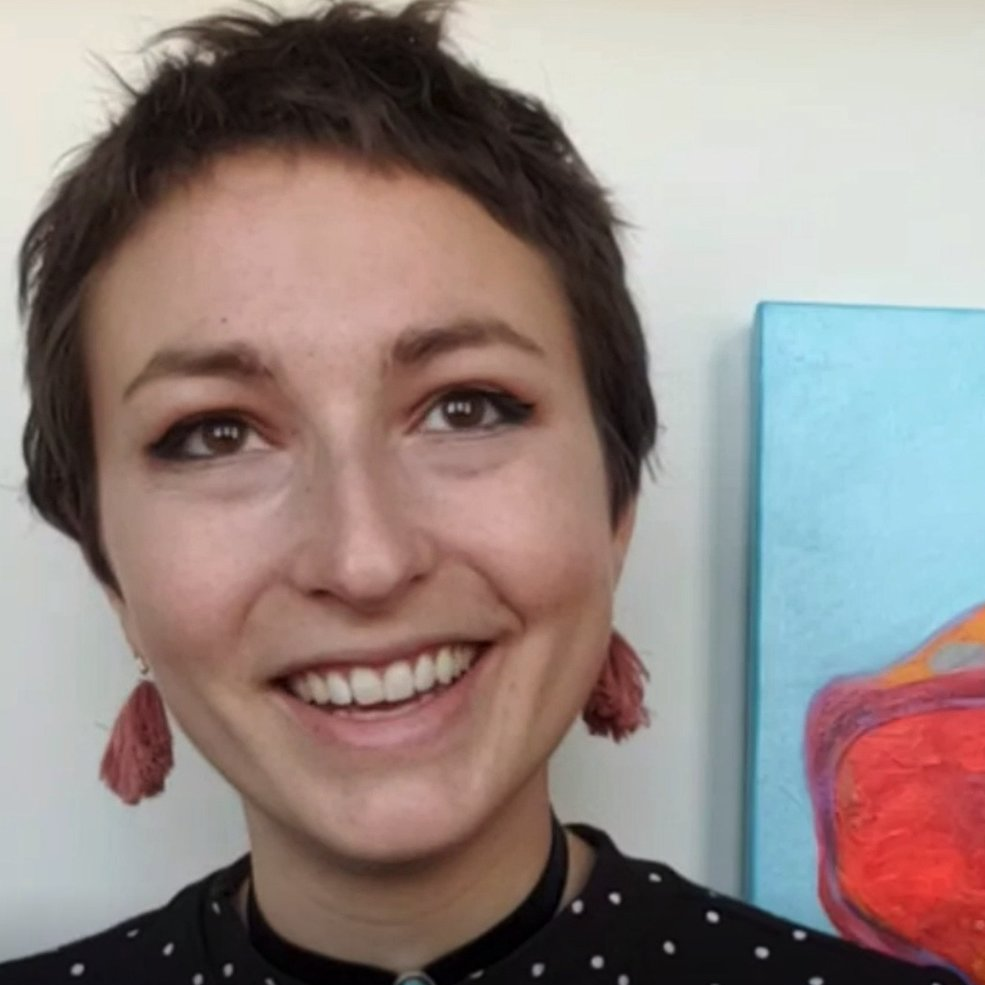
For me, when I was nauseous, I found that it was my body needing something. Either I was hungry and didn’t know I was hungry, or I was thirsty and didn’t know I was thirsty. Maybe I was even sleepy and didn’t know I was sleepy. You’re on all this medication, and it throws your body out of whack. When I would get nauseous and it was too much for my anti-nausea medicine, it was usually as simple as drinking a glass of water or taking a couple of bites of a sandwich.
Caitlin J. (Invasive Ductal Carcinoma, Stage 2B)

